New criteria for rais candidates, eased terms for veteran payments — key takeaways from State Council session
Tatarstan had warned of a shortage of funds for rare disease medication — support will be introduced, but the republic won’t receive it
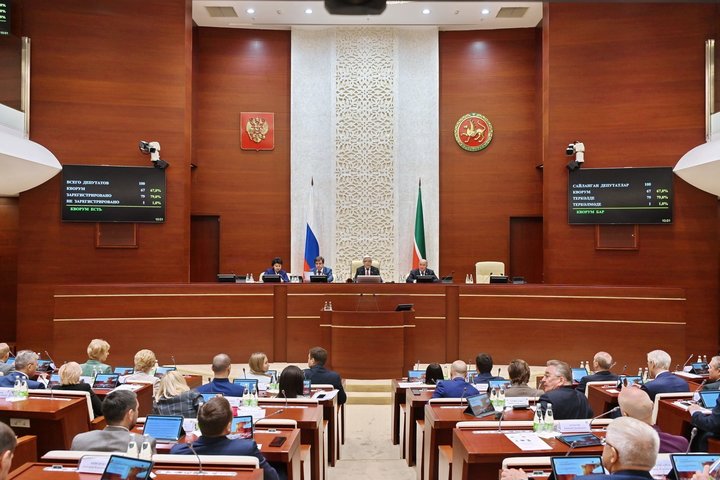
Russian citizens aged 30 and over who permanently reside in the country will now be eligible to run for the position of rais— the head of the Republic of Tatarstan. This amendment to the republic’s Electoral Code was adopted on 18 April at a session of the State Council. Meanwhile, deputies declined to support a federal bill on funding treatment for rare (orphan) diseases, noting that as a donor region, Tatarstan would not qualify for federal assistance under the proposed scheme. Additionally, members of the State Council proposed revising the eligibility criteria for labour veterans seeking social support. Currently, those with an income exceeding 20,000 rubles are excluded from receiving these benefits.
Citizens permanently residing in Russia who are at least 30 years old will be able to run for the post of rais
At the session of the Republic’s State Council, lawmakers have approved — in both the first and final readings — a bill introducing stricter requirements for candidates seeking the post of rais of Tatarstan. Under the new rules, only Russian citizens who permanently reside in the country will be eligible to run. Candidates must also hold passive electoral rights and be at least 30 years old on election day.
The legislation also prohibits foreign nationals, stateless persons, foreign and international organisations, international public movements, and foreign agents from participating in election campaigns. Specifically, they are barred from engaging in any activity that may promote or hinder the nomination and election of candidates or influence the outcome of the vote.
Free airtime and print space for campaign purposes will be allocated equally between candidates nominated by electoral associations and those registered in single-member constituencies.
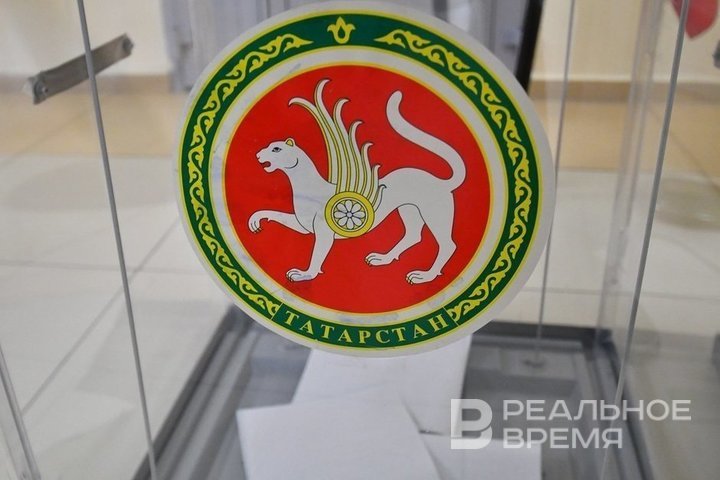
Tatarstan, as a donor region, will not receive funding for the treatment of rare diseases.
The State Council of Tatarstan has voiced concern over a draft federal law proposing a reserve mechanism for funding the treatment of orphan — or rare — diseases. This is not the first time regional deputies have raised the issue. A year ago, the republic’s parliament filed a complaint with the Constitutional Court, challenging provisions of the federal law On the Fundamentals of Health Protection of Citizens in the Russian Federation. In their appeal, the authors argued that current legislation places the burden of providing medication for patients with rare diseases on the regional authorities. However, many regions, including Tatarstan, lack sufficient funds for this, which in turn undermines the constitutional right of citizens to universal and equal access to medical care.
It was later announced that starting in 2026, patients in Russia with orphan (rare) diseases will be guaranteed coverage for essential medications from the federal budget — if regional authorities are unable to fund the treatments themselves. However, during today’s session, Svetlana Zakharova, Chair of the Committee on Social Policy, clarified that the support will not be available to all regions. Tatarstan, in particular, will not qualify. To receive interbudgetary transfers from the federal government, a region must prove that it is unable to fulfil these obligations on its own — a condition that effectively excludes donor regions like Tatarstan.
“According to the explanatory note to the bill, the procedure and criteria for such confirmation are expected to be tied to the level of calculated budget sufficiency of a region — specifically, to a threshold not exceeding 0.65. Our republic, like other donor regions, has a higher indicator. Consequently, we will not be able to count on federal co-financing for these expenses,” stated Svetlana Zakharova.
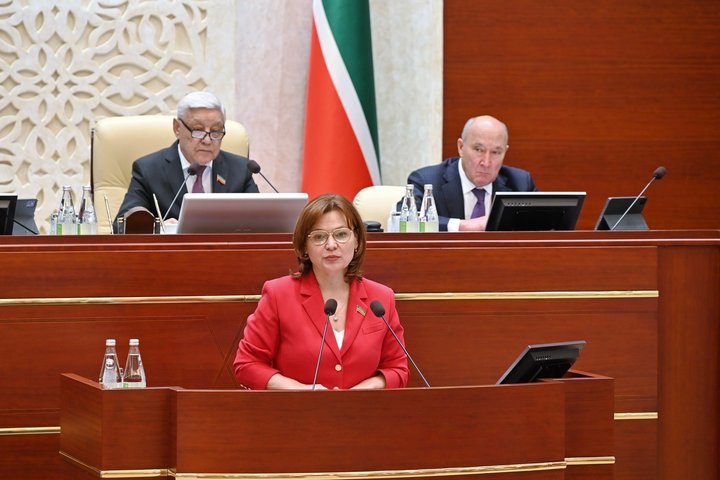
She stressed that access to support should not depend on a region’s level of budget sufficiency. The State Council ultimately decided not to support the draft federal law. Its chairman, Farid Mukhametshin, emphasised the need to discuss the issue with Tatarstan’s deputies in the State Duma — and expressed indignation that they had already left the chamber.
Labour veterans with an income exceeding 20k rubles are currently excluded from receiving social support
Ahead of Victory Day, State Council deputy Ruslan Yusupov proposed raising the income threshold for labour veterans to qualify for benefits. He expressed indignation that veterans currently lose their social support if their income exceeds 20,000 rubles.
“As of today, all payments and guarantees for labour veterans, as well as the procedures for granting them, are defined by regional legislation. In November 2015, the State Council of Tatarstan approved a restriction barring veterans with an income over 20,000 rubles from receiving benefits. As a result, they lost subsidies for utility payments, as well as access to free dental and hearing prosthetics,” he explained.
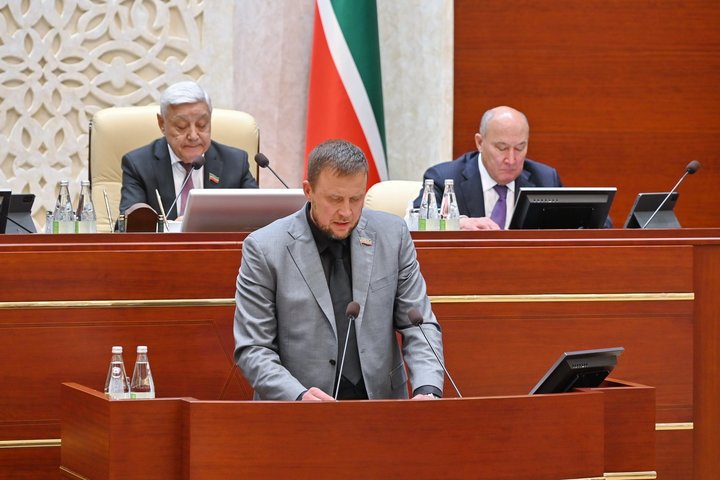
He noted that the limitation applies to those who were granted the status of labour veteran starting from January 1, 2016.
Ten years on, labour veterans living in the republic still cannot access social support measures if their average monthly income exceeds 20,000 rubles, the deputy stated. Meanwhile, according to Rosstat, as of June 1, 2024, the average nominal pension in Tatarstan stands at 20,768 rubles. And according to calculations by the Russian Social Fund, by the end of 2024, the average old-age insurance pension will have reached 22,400 rubles, he added.
He emphasised that the purchasing power of 20,000 rubles has changed significantly over this period. In response, Farid Mukhametshin asked the deputy to pass on the key points of his speech to the Chair of the Social Policy Committee.
“Let’s take a closer look at what exactly we restricted and which group of veterans was affected. Some have one level of income, others another. Let’s see what might be done in light of such a concerned address. We’ll review it together,” said the Chairman of the State Council.
Two settlements abolished in Almetyevsk district
In addition, the meeting adopted a draft law on the development of creative industries in Tatarstan. The document was adopted in the first reading on March 28. Since then, six amendments have been formulated, which are editorial and clarifying in nature and do not change the essence of the law.
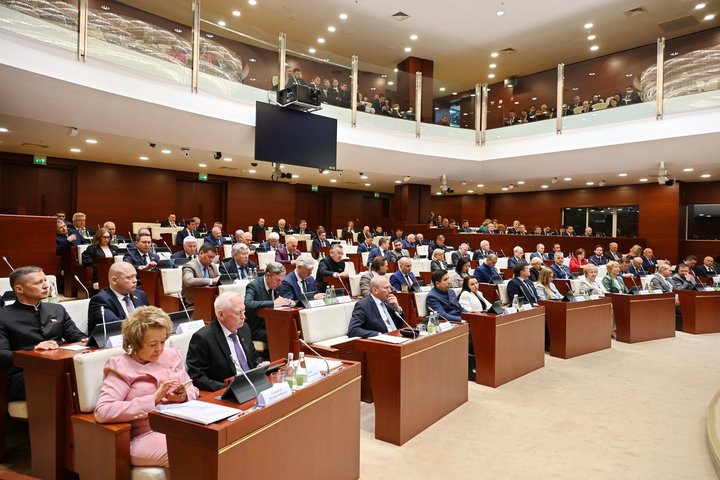
“In general, the legislation in this area is new. Specific proposals for improving the law can be prepared based on the results of monitoring its enforcement," said Ryagat Khusainov, the chairman of the Committee on Economy, Investment and Entrepreneurship.
The deputies also supported the abolition of two settlements in the Almetyevsky district of Tatarstan. We are talking about the village of Glazovka and Butinsky forestry. As explained by the deputy head of the district, Rosa Aflyatunova, they are not actually functioning and have no prospects for development. Residents of the Butinsky forestry moved to the village of Molodezhny back in 1997. Hazovka was deserted in 1985: the population of the village moved to the village of Sosnovka and the village of Nolinka.